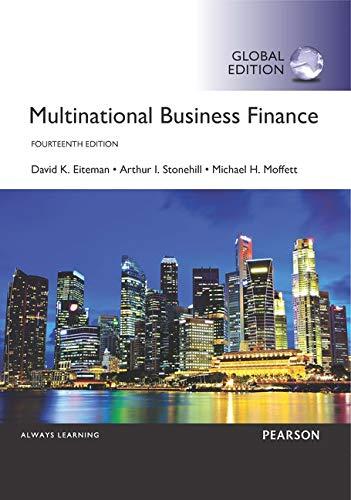Its late afternoon on March 10th, 2004, and Santiago opens the window of his office in Caracas,
Question:
It’s late afternoon on March 10th, 2004, and Santiago opens the window of his office in Caracas, Venezuela. Immediately he is hit with the sounds rising from the plaza—cars honking, protesters banging their pots and pans, street vendors hawking their goods. Since the imposition of a new set of economic policies by President Hugo Chávez in 2002, such sights and sounds had become a fixture of city life in Caracas. Santiago sighed as he yearned for the simplicity of life in the old Caracas.
Santiago’s once-thriving pharmaceutical distribution business had hit hard times. Since capital controls were implemented in February of 2003, dollars had been hard to come by. He had been forced to pursue various methods—
methods that were more expensive and not always legal—
to obtain dollars, causing his margins to decrease by 50%.
Adding to the strain, the Venezuelan currency, the bolivar (Bs), had been recently devalued (repeatedly). This had instantly squeezed his margins as his costs had risen directly with the exchange rate. He could not find anyone to sell him dollars. His customers needed supplies and they needed them quickly, but how was he going to come up with the $30,000—the hard currency—to pay for his most recent order?
Political Chaos Hugo Chávez’s tenure as President of Venezuela had been tumultuous at best since his election in 1998. After repeated recalls, resignations, coups, and reappointments, the political turmoil had taken its toll on the Venezuelan economy as a whole, and its currency in particular. The short-lived success of the anti-Chávez coup in 2001, and his nearly immediate return to office, had set the stage for a retrenchment of his isolationist economic and financial policies.
On January 21st, 2003, the bolivar closed at a record low—
Bs1853/$. The next day President Hugo Chávez suspended the sale of dollars for two weeks. Nearly instantaneously, an unofficial or black market for the exchange of Venezuelan bolivars for foreign currencies (primarily U.S. dollars)
sprouted. As investors of all kinds sought ways to exit the Venezuelan market, or simply obtain the hard-currency needed to continue to conduct their businesses (as was the case for Santiago), the escalating capital flight caused the black market value of the bolivar to plummet to Bs2500/$ in weeks. As markets collapsed and exchange values fell, the Venezuelan inflation rate soared to more than 30% per annum.
Capital Controls and CADIVI To combat the downward pressures on the bolivar, the Venezuelan government announced on February 5th, 2003, the passage of the 2003 Exchange Regulations Decree. The Decree took the following actions:
1. Set the official exchange rate at Bs1596/$ for purchase (bid) and Bs1600/$ for sale (ask);
2. Established the Comisin de Administracin de Divisas (CADIVI) to control the distribution of foreign exchange; and 3. Implemented strict price controls to stem inflation triggered by the weaker bolivar and the exchange controlinduced contraction of imports.
CADIVI was both the official means and the cheapest means by which Venezuelan citizens could obtain foreign currency. In order to receive an authorization from CADIVI to obtain dollars, an applicant was required to complete a series of forms........
Mini-Case Questions 1. Why does a country like Venezuela impose capital controls?
2. In the case of Venezuela, what is the difference between the gray market and the black market?
3. Create a financial analysis of Santiago’s choices. Use it to recommend a solution to his problem.
Step by Step Answer:

Multinational Business Finance
ISBN: 9781292097879
14th Global Edition
Authors: David Eiteman, Arthur Stonehill, Michael Moffett





